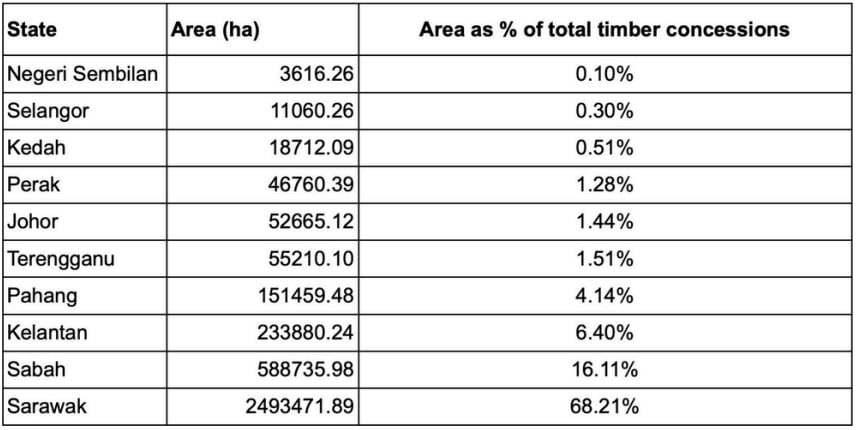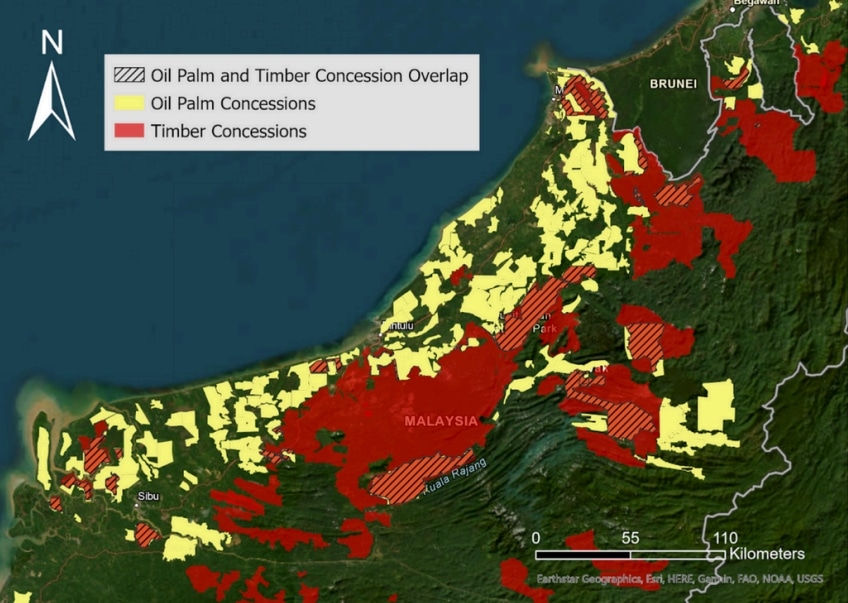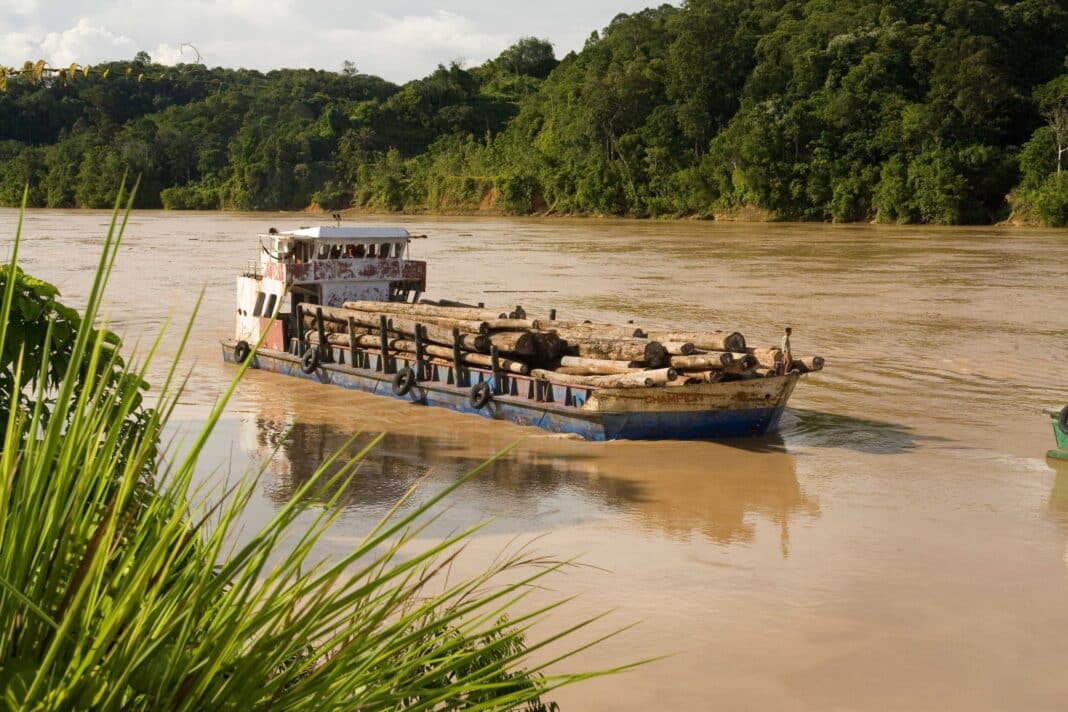Malaysia is at risk of losing 16% of its remaining forest cover, with government concessions for timber and palm oil threaten the country’s COP26 commitment to maintain 50% of forest and tree cover.
That is according to the environmental watchdog Rimbawatch, which has been vocal about Malaysia’s lack of transparency around forestry and land use data.
Now, its latest publication, the State of Malaysian Rainforests for 2024, reports that based on its own definition of deforestation, forests at-risk have increased from 2.3 million hectares in 2023 to 3.2 million hectares.
According to the report, “timber plantations represent more than 76% of total threats to forests, with the majority of these concessions located in intact forests,” adding that “oil palm and timber concessions overlap.”
In addition, it alleges that timber plantations are encroaching on indigenous communities, with “the majority of future deforestation unreported by Malaysian authorities due to loopholes in definitions.”
The loopholes stem from how the Malaysian government categorise the conversion of natural forests to timber plantations: “When a natural forest in a gazetted estate or reserve is converted to monoculture,” it said, “Malaysia does not consider any clearances for timber plantations as deforestation, regardless of physical changes to the ecosystem.”
The upshot is that, in line with the Food and Agricultural Organisation’s (FAO) definition of deforestation, “there is hardly any deforestation from plantations,” with Rimbawatch also alleging the government is therefore manipulating its forest cover area.
If Malaysia targets 2.3m hectares for deforestation, will forest cover drop to 47.35% (below the COP26 commitment)
“If this deforestation occurs, Malaysia’s forest cover will drop below 50 per cent of our landmass, thereby constituting a failure of Malaysia’s commitment to maintain 50 per cent forest cover,” Rimbawatch said in a press statement accompanying the report.
It said that the overall loss of forests – measured at 3.2 million hectares, is equivalent to Pahang, Malaysia’s largest state. According to Rimbawatch co-founder and director Adam Farhan, Pahang is among the top states where concessions overlap with natural forests, with other states including Sarawak, Sabah, and Kelantan.
The report also states that Sarawak reported 68.2% of timber plantations in intact forests, four times more than the next highest—Sabah, with 16.1%. Of all concession types, monoculture timber plantations are the greatest threat to Malaysian forests, followed by degazettement of forest reserves, hydropower projects, and palm oil plantations.

Three-quarters of all at-risk forests are located inside timber plantations.
According to the report “timber plantations refer to programmes Malaysia’s forestry authorities support to increase timber supply,” adding that “these plantations … involve the clearance of natural forests in forest reserves and their conversion to monoculture plantations, usually for rubberwood or acacia.”
Whilst authorities promote plantations as a means to “restore” degraded forests, data showed that just 38% of forests in timber plantation concessions are degraded, with the majority classified as “undisturbed forests.”
Rimbawatch analysed the data using ArcGIS, measuring the European Union’s Tropical Moist Forest cover data set, a tool used to support the EUDR against Malaysia’s concession boundaries.
Worryingly, the Rimbwatch said that due to official definitions of forest cover, much of the deforestation could go unreported. “Official data remains untransparent,” Rimbawatch noted, pointing out that Malaysia does not publish geospatial data of its official forest cover statistics and that timber concession maps are outdated.

Definitions matter: Push for greater transparency in reporting.
Not only will the clearance of Malaysian forests jeopardise its forest cover commitments, but it also threatens the country’s biodiversity and ecological functions and its commitment to achieving net-zero greenhouse gas emissions by 2050.
According to the report, clearing 2.4 million hectares of timber plantations would release 368 million tonnes of carbon dioxide into the atmosphere – equivalent to a year’s worth of emissions from the UK. As a result, “Rimbawatch is making an urgent call based on these findings for an immediate end to all conversions in forest reserves for timber plantations.”
The new report comes just weeks after Rimbewatch launched a new tool to track deforestation in Malaysia. “Forest Tracker” allows users to track past and projected deforestation in Malaysia, with different land-use layers, including oil palm, timber plantations, mining, infrastructure and other commodities.
According to Rimbawatch, the Forest Tracker is the only comprehensive Malaysian forest concessions database covering all deforestation-risk sectors. It is the only publicly available collated dataset on Indigenous traditional territories nationwide.
“As the government continues to hide data related to environmental impact assessments, the location of oil palm plantations, forest reserves, forest cover and others, we hope that by publishing this map, we are, as a citizen-led initiative, fulfilling the right of the public to information,” Mr Farhan said.
- To download the full report, visit Rimbawatch’s website.






